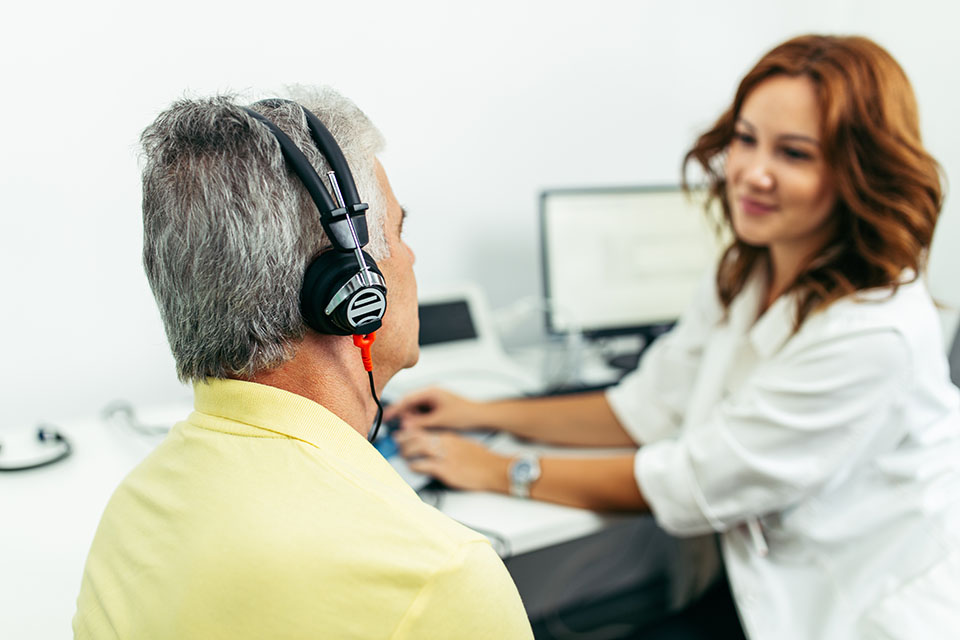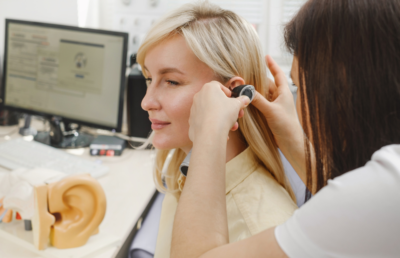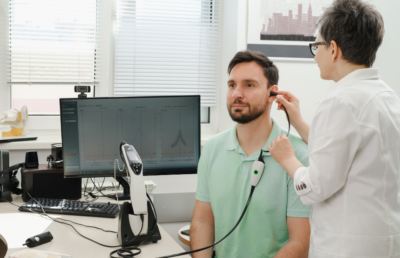When talking about hearing aids, the focus often tends to be on the technology aspect of things. And indeed, the last few years have brought forward an amazing list of new features: bluetooth connectivity, mobile phone adjustment menus, rechargeable hearing aids, etc.
But the more crucial aspect of the effectiveness of hearing aids is often ignored: the importance of getting them fitted by an experienced audiologist. Indeed, there’s a marked difference in the selection and fitment experience you might have at a big box retailer vs. visiting an audiologist’s private practice.
Let us walk you through our typical process:
1. It begins with the selection process
An audiologist will run a series of tests to evaluate your hearing, both with what’s structurally going on and with your particular symptoms as you experience them. Trust us, you want the comprehensive tests, not the quick and easy hearing tests done by the big box stores or many retail chains.
2. The results of the tests will narrow down your options of hearing aids
Hearing aids come in four style options:
- in the canal,
- in the ear,
- receiver-in-the-ear, and
- behind the ear,
each with their own list of pros and cons. Only a certain type might be suitable for your particular kind of hearing loss, or you may have some options depending on the look and performance you want.
Generally, there is a tradeoff between functionality and size, so you’ll have to think carefully about what’s more important, having your hearing aid be discrete, or having your hearing be the best it can possibly be.
3. Then comes the actual fitting
An audiologist who follows evidence-based practice knows the processing for fitting for both comfort and optimum performance. During the fitting process, the hearing aids are programmed to address your communication difficulties. During this appointment, the audiologist will also run objective testing measures (real ear) that the hearing aids are programmed optimally to help you reach your hearing goals. Let’s face it — poorly fitting hearing aids are often left unworn, and they’re a waste of money too.
4. You take the hearing aid for a test drive
After some initial test with the hearing aid in place and some more adjustments, your audiologist will send you home with some instructions on what to listen for.
5. Follow-up visits fine-tune your hearing aids for success
At predefined intervals, you’ll return to your audiologist for follow-up appointments. These will use your input, as well as data from your hearing aid, to fine-tune the performance of the hearing aid to your exact needs. Good news is, these follow-up visits can many times be done virtually.
Last but no least, there’s another benefit to choosing an audiologist who works at a privately owned practice vs a chain: the hearing aids we sell are unlocked, and we are not working for commission. We are doctors, interested in providing the highest possible standard of care, and that’s it. We don’t make our money on volume, or getting as many patients per day through the door.
If you think you or a loved one might be ready for their first set of hearing aids, or just a new pair, contact us today to schedule an appointment!





